Mali
UN peacekeepers, ordered to leave Mali by the country's leaders, have been forced to rush their withdrawal, destroy equipment left behind and risk their lives on the road out.
Following a coup in 2020 the new military rulers in June ordered the peacekeepers out, proclaiming the "failure" of their mission and denouncing its alleged "instrumentalisation" of the human rights issue.
The following is an overview of this large-scale and risky operation, which brings to an end 10 years of efforts to try to stabilise a country plagued by jihadism and a range of other crises.
- Separatists and jihadists -
The United Nations Multidimensional Integrated Stabilization Mission in Mali (MINUSMA), whose strength has hovered around 15,000 soldiers and police officers, has seen 180 of its members killed.
According to the latest update from the force, issued on Friday, 5,817 MINUSMA staff have left the force as of this week.
The original plan was for the peacekeeping force to have withdrawn from the West African nation by the end of the year, but already the UN troops have been leaving their compounds one after another, with the first withdrawals as early as July.
The MINUSMA withdrawal has exacerbated rivalries between armed groups present in the north of the country and the Malian state.
These groups do not want the UN camps handed back to the Malian army, saying such a move would contravene ceasefire and peace deals struck with Bamako in 2014 and 2015.
However the army is pushing to take back control of the evacuated camps.
The predominantly Tuareg separatist groups who oppose the army have resumed hostilities against it.
The Al-Qaeda-linked Support Group for Islam and Muslims (GSIM) has also stepped up attacks against the military.
That means that MINUSMA's pull-out is all the more perilous, taking place against the background of this renewal of hostilities -- and on what are perceived to be restrictions imposed by the authorities on its ability to manoeuvre.
- Peacekeepers attacked -
After vacating five camps since August, MINUSMA completed its "accelerated withdrawal" from Tessalit, in the northern Kidal region, on Sunday.
It did so, it said, in an "extremely tense and degraded" security context that "endangered the lives of its personnel". In the days running up to the pull-out, shots were fired at its cargo aircraft and at its positions.
Part of the contingent, mainly Chadian, left by plane. But the rest were forced to travel overland to Gao, through more than 500 kilometres (310 miles) of desert, under constant threat from armed groups.
The withdrawal from Aguelhok the following day happened under similar conditions, and the authorities did not give clearance for flights.
According to MINUSMA, the withdrawing convoys were attacked by explosive devices, resulting in injuries. The GSIM claimed responsibility.
And on Thursday, a logistics convoy travelling from Ansongo to Labbezanga in the Gao region came under fire. Three civilian truck drivers were injured, one of them seriously, said MINUSMA.
- Equipment abandoned -
The UN peacekeeping force says it has had to destroy or decommission equipment such as vehicles, ammunition and generators that it was unable to take away, in accordance with UN rules.
Such losses of material "could have been avoided" if 200 trucks had not been blocked in Gao since September 24 by restrictions that the authorities imposed on them, said MINUSMA.
Tanker trucks intended to supply convoys are also stuck in Gao.
"Customs officials explained that the quantity of fuel was not justified," a mission official said.
A Malian policeman based in Gao argued that the authorities feared that MINUSMA would "deliver fuel to the jihadists".
Such an allegation, based on no evidence, reflects the mistrust between MINUSMA and Mali's military rulers.
- Pressure on Mali's leaders -
A confidential note to the UN Security Council from its Department of Peace Operations, seen by AFP, set out the obstacles faced by MINUSMA. They included the withholding of flight or travel permits, an embargo on imports it needed and the impossibility of carrying out security patrols around its own camps.
In this light, MINUSMA drew up a plan B for its withdrawal, including last-resort measures.
Malian government spokesman Colonel Abdoulaye Maiga has accused former ally France, which has also been pushed out of the country, of sparing "no effort to make MINUSMA flee".
By speeding up its withdrawal, the UN peacekeeping force is upsetting the plans of the Malian army, which does not want to let the separatists fill the vacuum.
"The junta has taken the decision to kick out MINUSMA, but they are having the pace of the withdrawal imposed on them," said Jonathan Guiffard, a specialist in Africa and defence matters at the Paris-based Institut Montaigne.
- Tensions expected to rise -
Tensions are expected to rise further in Kidal following the UN departure.
The region is the stronghold of the Tuareg rebellion and a major sovereignty issue.
While the final departure from Kidal was initially planned for the second half of November, a MINUSMA official recently said it could be just a matter of days before the peacekeepers left.
Non-essential personnel have been the first to head out.
"We are not going to stand idly by and put our troops in danger," said a Chadian officer.




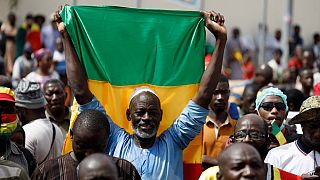
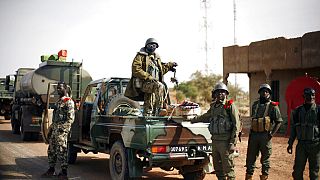
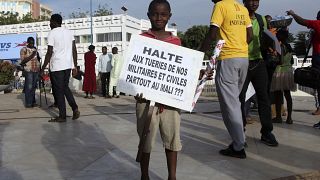
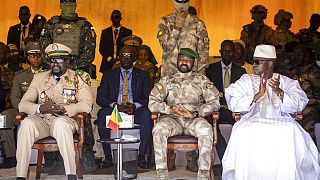
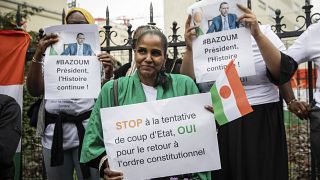
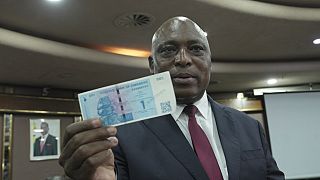
01:38
Italian family back in Rome following two years of captivity in Mali
00:59
Mali: MINUSMA hands over the Timbuktu camp to the FAMA
Go to video
MINUSMA lowers its flag in Mali
Go to video
Mali: Minusma hands over one of its last camps to the authorities
00:56
Mali: Troops from Germany withdraw following end of UN mission
Go to video
Burkina: fifteen civilians killed in "simultaneous attacks" this weekend